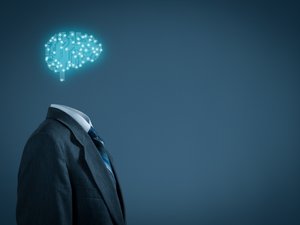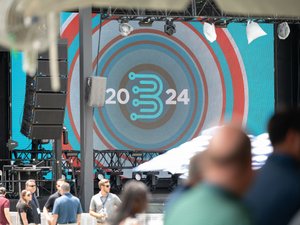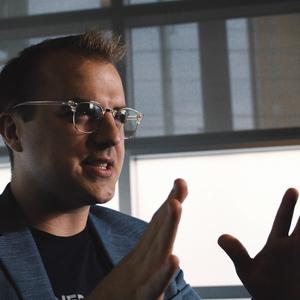
With AI platforms growing in popularity across different industries and nationwide AI-related legislation in discussion, it’s hard to predict how AI software usage will impact the future of the business scene.
The future of entrepreneurship could be affected by AI’s continued presence in innovative markets like software development. It's a trend those involved patent and intellectual property (IP) law or developing new products need to watch.
Hunter Adams, a patent and IP lawyer with AdamsIP, sat down with the BBJ to share his perspective on the future intersection of patent law and AI-produced content.
How does patent law apply to technological innovation, like software and apps?
There are only four types of intellectual property: patents, trademarks, copyrights and trade secrets. If companies want to protect their innovative stuff, it's through intellectual property. Patents protect inventions, not only something like a medical device but also the software behind it.
How does AI play into intellectual property and filing a patent for an idea?
AI is majorly in the news about patents right now and the reason is because legally, in order to file a patent, you must be the inventor. A computer cannot be an inventor of something. For example, a patent solving a problem for Band-aids falling off - you didn't come up with the adhesive characteristics, but if AI spits out a patent application related to a new type of adhesive, there are major questions about whether you can be the inventor of that. There are a lot of questions about the way AI is going to play out in the patent space. I do think, based on the law, that what you're going to see are questions about the validity of patents.
What are some of the differences of how you apply for a software patent as opposed to a hardware patent?
Can you patent software? Yes. Do we get patents on software all the time? Yes. What a lot of people have to grasp is we're probably not going to file a patent on your platform. The trick to filing in the software space is to look at the subject features of what your software or program is doing and then try to see if those particular software features are unique instead of the whole platform.
With a medical device, it's actually quite similar because from a patent perspective, I don't want to just file on the whole medical device. If your medical device has five components: A, B, C, D and E, but really only A&B are novel, non-obvious, super innovative, you only want to file a patent covering those first two things, because then if someone wanted to design around you they would now have to include those other three things. A lot of people that don't know a lot about patents don't realize that we often are not going to patent your whole product or your whole platform; a successful IP portfolio building plan is about determining what subject features are super unique and aggressively protecting those subject features.
How do you foresee AI affecting the patent and intellectual property market in the future?
As a service provider, I see AI helping us draft patents faster and more broadly. Right now, there's so much strategy that goes into high quality patent protection. There's a major hierarchy, in my opinion, of someone who just goes and files a patent versus someone who has strategy behind building a portfolio. I think that AI in its current iteration can just crank out a patent, but as far as the practice of law, we're already using it in our practice and all of the most innovative lawyers in the patent space, especially the IP space, should be using it, or they're going to get left behind.
How do AI-generated content disclosure issues play into intellectual property law?
The disclosure issues relating to the formation of content is highly interesting. I don't know the way it's going to play out from a regulatory perspective, but what I do know a lot about is protecting IP and enforcing IP and what I can say is that, if AI creates something, I think there are major questions about who has the right to enforce it. The point of a patent is to advance the sciences in the world. If the policy is that you work super, super hard, you spent tons of money and we, the United States, are going to reward you for that by giving you 20 years of ownership, it seems that we're stretching the policy by saying if you use AI to come up with stuff, we'll also give you rights to it. Why should you be rewarded? If AI, just through hard data mining, came up with this super awesome invention, why should a person have the right to that?







